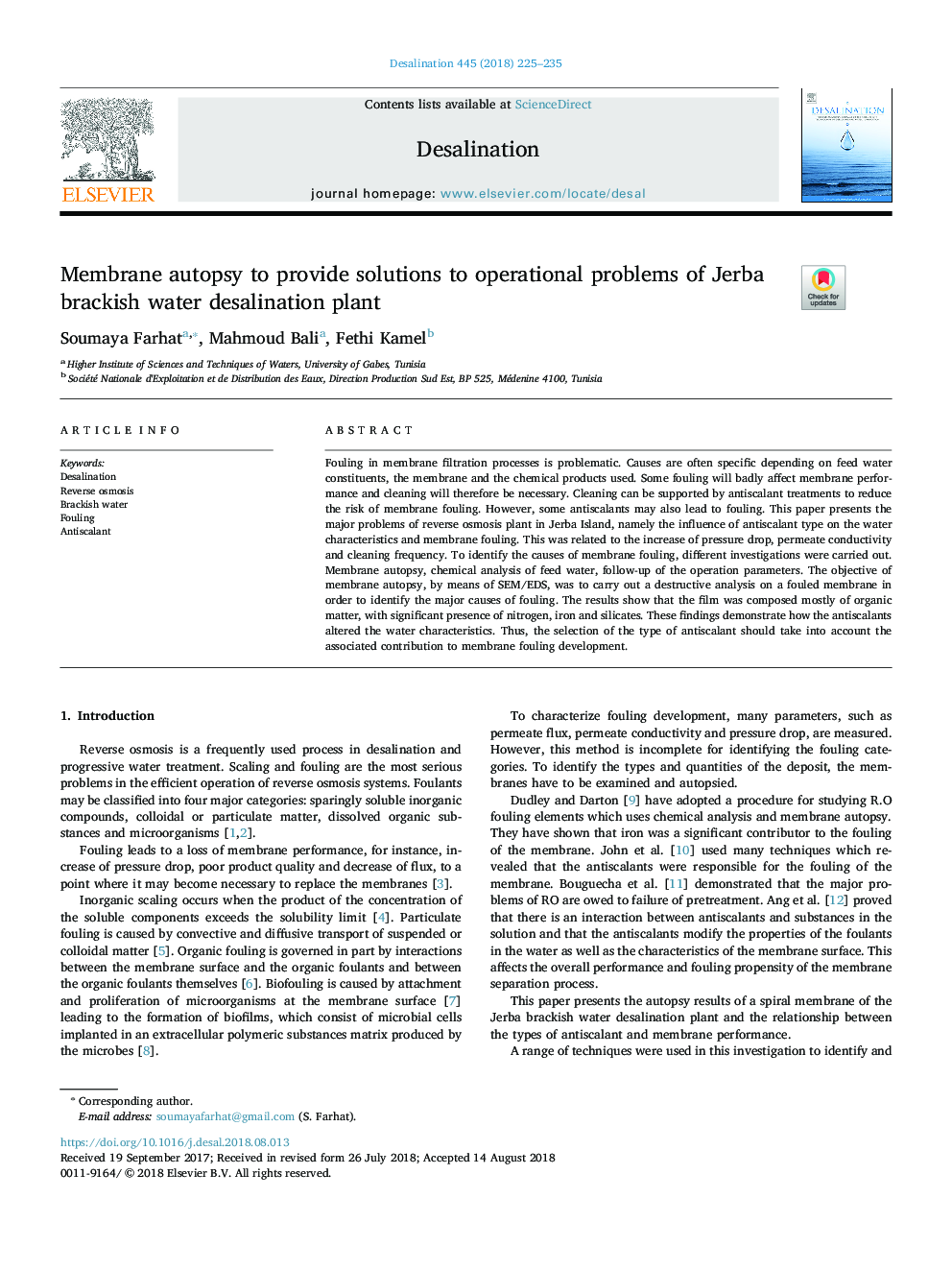| Article ID | Journal | Published Year | Pages | File Type |
|---|---|---|---|---|
| 11003266 | Desalination | 2018 | 11 Pages |
Abstract
Fouling in membrane filtration processes is problematic. Causes are often specific depending on feed water constituents, the membrane and the chemical products used. Some fouling will badly affect membrane performance and cleaning will therefore be necessary. Cleaning can be supported by antiscalant treatments to reduce the risk of membrane fouling. However, some antiscalants may also lead to fouling. This paper presents the major problems of reverse osmosis plant in Jerba Island, namely the influence of antiscalant type on the water characteristics and membrane fouling. This was related to the increase of pressure drop, permeate conductivity and cleaning frequency. To identify the causes of membrane fouling, different investigations were carried out. Membrane autopsy, chemical analysis of feed water, follow-up of the operation parameters. The objective of membrane autopsy, by means of SEM/EDS, was to carry out a destructive analysis on a fouled membrane in order to identify the major causes of fouling. The results show that the film was composed mostly of organic matter, with significant presence of nitrogen, iron and silicates. These findings demonstrate how the antiscalants altered the water characteristics. Thus, the selection of the type of antiscalant should take into account the associated contribution to membrane fouling development.
Related Topics
Physical Sciences and Engineering
Chemical Engineering
Filtration and Separation
Authors
Soumaya Farhat, Mahmoud Bali, Fethi Kamel,
